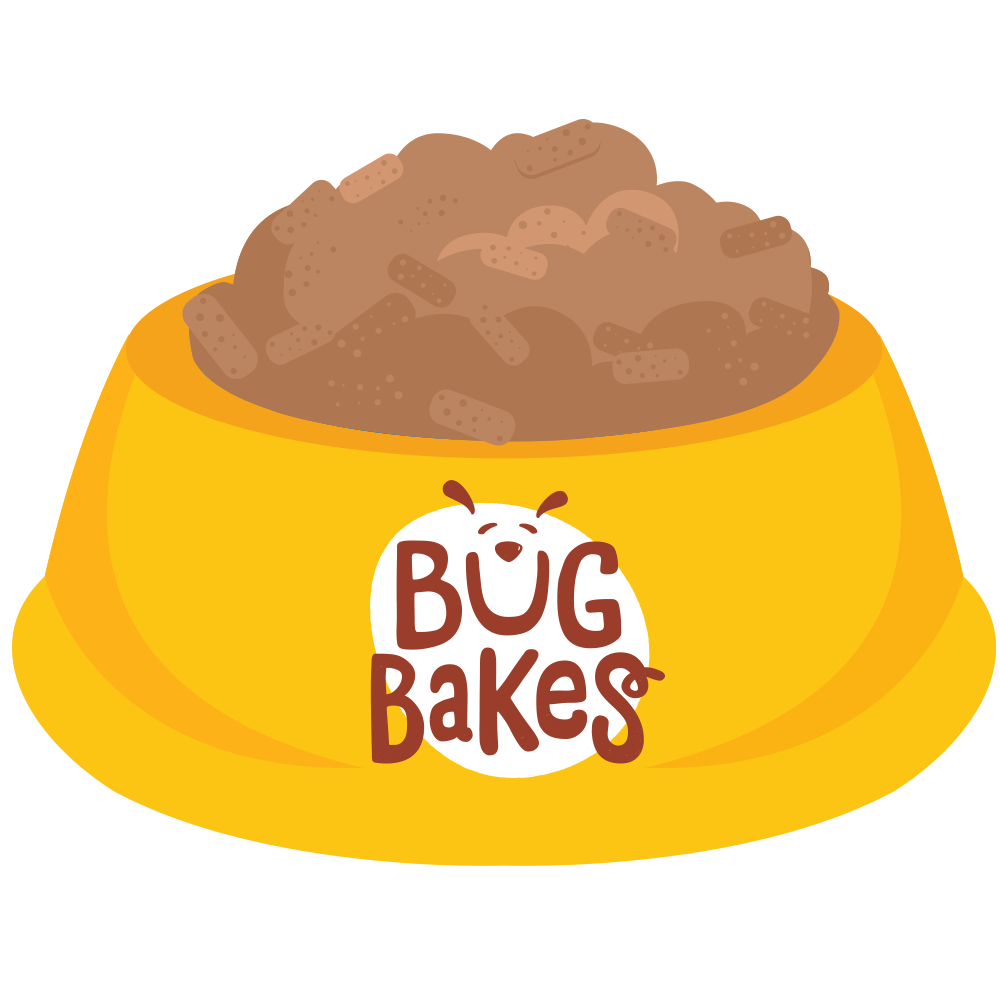High-Quality Dog Food For Pancreatitis
A nutritionally-complete, healthy diet is important for all dogs. But it is even more important for dogs who have been diagnosed with or are prone to pancreatitis. If you are looking for a low-fat recipe that has been specially designed with your dog’s health and happiness at the forefront, look no further than our pancreatitis dog food. Containing non-aggravating ingredients, our expertly crafted recipe helps to manage and alleviate the symptoms of pancreatitis in dogs.

Our complete dog food is unmatched. We know how important nutrition is when it comes to managing this condition. That is why our food is low in fat and high in protein, making it much gentler on your pup’s digestive system.
What Is Pancreatitis?
As a dog parent, your top priority is to make sure that your pup leads a happy and healthy lifestyle. And, while many other health conditions are easy to spot, it is easy to mistake the symptoms of pancreatitis for something less serious. But, they should not be. After all, the pancreas plays an important role in aiding digestion. However, when the enzymes secreted by the pancreas are activated before they make it to the small intestine, they begin to digest the pancreas itself. This ultimately leads to the inflammation of the pancreas.
Acute pancreatitis only lasts for a brief period but can still cause extreme discomfort for your pooch. Chronic pancreatitis, on the other hand, refers to ongoing inflammation and can eventually lead to an inability to digest foods properly. Whether your dog is dealing with short-term or long-term issues, it is important to take the steps to alleviate their discomfort and reoccurrence. Chief among these steps is to switch to an anti-inflammatory diet.
Signs Of Pancreatitis In Dogs
It is fair to say that it is not always easy to tell if your dog is suffering from pancreatitis as the symptoms can be mild or severe. But thankfully, there are a few tell-tale signs to look out for, including:

Lethargy
Low Appetite
Vomiting or Nausea
Diarrhoea
Fever
Abdominal pain
Abdominal Enlargement
The Praying Position
Your beloved pet is sitting in a praying position with its head and front legs lowered onto the floor and its rear end in the air
If your furry friend is displaying any of these symptoms, we advise you to visit the vet at the earliest opportunity. Your vet will help to rule out any other health problems before treating your pooch. As soon as your dog’s condition is stable, it is wise to keep them on a low-fat diet to reduce the risk of recurrence.
Which Dogs Are Prone To Pancreatitis?
As your dog gets up there in years, the risk of pancreatitis increases. Not to mention, certain breeds, such as miniature schnauzers and cocker spaniels are more prone to develop this condition than others. The good news is that our food is suitable for all breeds that are 2 months and older.

A Recipe Backed By Science
Our recipes have been designed with the help of canine experts. Containing ingredients to support your pup’s health, you can be sure that your dog will be on the road to recovery in no time. Our specially formulated dog food contains:
Low-Fat Content
Designed to promote pancreatic healing, our low-fat food contains all the nutrients required to keep your dog healthy whilst preventing flare-ups.
Highly Digestible Protein
It is crucial that your dog gets the right balance of amino acids to aid healing. That is why our complete dog food is composed of black soldier fly larvae, which are high in protein. Not to mention, they have a higher digestibility score than meat-based proteins.
Concurrent Conditions Our Food Can Help With
Of course, nothing in life is ever that straightforward. And, there is a chance that your beloved animal may be suffering from a concurrent condition that further impacts its dietary requirements. But the good news is that our complete dog food is designed to support and manage a wide range of conditions, including:
Hyperlipidaemia
This is a condition where there are abnormally high levels of fats or cholesterol in the blood. With our low-fat dog food, you can get a hold of your dog’s fat levels one bowl of dog food at a time.
Obesity
Obesity is an all too common problem for dogs and their owners. But thankfully, with our nutritionally-complete dog food, you can effectively manage your dog’s weight whilst ensuring they are getting all of the right nutrients.
Diabetes Mellitus
Diabetic dogs will benefit from a low-fat, high-fibre diet. This helps to manage glucose levels and can even promote weight loss.
Exocrine Pancreatic Insufficiency
This is a condition where the pancreas fails to produce digestive enzymes. In such cases, it is advisable to feed your dog a diet that is low in fat. This helps to reduce the strain on the pancreas to break down fat.
Inflammatory Bowel Disease
A diet with a high digestibility score is ideal for dogs suffering from inflammatory bowel disease. Instead of aggravating the condition, insect-based protein helps to prevent inflammation.
Food Sensitivity
Our nutritionally-balanced dog food has hypoallergenic properties, making it ideal for dogs with food allergies and intolerances.
Our Expert Feeding Guide
Understandably, you may be worried about changing your pet’s diet. After all, you want to make sure that you are providing your furry friend with everything they need to live a happy and healthy life. That is why we provide all of our subscribers with an approximate daily feeding guide that matches the dietary needs of their pooch. Our feeding guides are designed using the FEDIAF-published daily calorie requirements. Let us work out the details for you, so your dog can continue to enjoy its quality of life.Our Food Is Second To None

Sustainable
Our processes are driven by sustainability.

Natively Grown Ingredients
To reduce the impact of air travel, we work with as many UK suppliers as possible.

High-Protein
Rich in essential amino acids, black soldier fly larvae provide a sustainable source of protein.

100% Recyclable Packaging
Our packaging is completely recyclable to help create a circular economy.
We Are Vet-Approved
Our dog food is not only formulated by canine experts. It is also vet-approved, so you do not have to worry about getting the green light from your vet. Plus, if you decide to subscribe to us, you will benefit from access to our 24/7 vet support line. Whenever you are unsure about your dog’s health, you can get in touch with an expert who will be happy to provide some clarity.
The benefits of our insect-based protein include:

High-Quality Ingredients
Our insect-based protein is high in vitamins, fats and amino acids - everything you need to provide a nutritionally-complete diet.

Anti-Inflammatory Properties
Dogs of any age can suffer from joint pain. If you notice that your pup is slowing down, this may be due to pain in the joints. Our complete dog food contains Chondroitin, Chicory, Root extract and Glucosamine - all of which contain anti-inflammatory properties that help to alleviate pain.
Testimonials
FAQ
How do dogs get pancreatitis?
At present, it is not known what the exact cause of this condition is. Though, it is likely that it is triggered by a high-fat diet or corticosteroid administration.
Can dogs recover from pancreatitis?
The good news is that with the correct diet and veterinary care, most dogs go on to fully recover from pancreatitis.
How long does it take to heal?
It depends on how severe the case is. If your dog has acute pancreatitis, it can take a week for them to fully recover. It is worth noting that it will likely take longer for your pup to recover from chronic pancreatitis.
How is pancreatitis treated in dogs?
Aside from a recommended change in diet, your vet will give your dog analgesics to alleviate the pain as well as intravenous fluids to maintain normal levels of fluid and electrolytes. In most cases, your dog will also be given anti-inflammatory drugs to prevent vomiting or diarrhoea. If your dog has a concurrent infection, antibiotics may be administered.
What should I feed my dog if it has pancreatitis?
It is recommended that you feed your dog a diet that is low in fat and high in fibre.
What foods should I avoid?
Meats such as chicken and beef are high in fat and therefore should be avoided.
Contact Us


